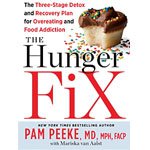“The prevailing attitude was that obese and overweight individuals were responsible for their situation, and the failure to lose weight was the result of not trying hard enough,” says Adrian Carter, PhD, one of paper’s authors and research fellow at the University of Queensland Centre for Clinical Research in Australia.
Even though significant neuroscience research in recent years has shown how certain foods can produce changes in the brain similar to those seen in drug addiction, and even though 80% of those surveyed in Dr. Carter’s study take food addiction seriously, the science seems to run into a blockade of morality.
“People’s moral attitudes towards others are often strongly held and can be incredibly difficult to shift,” says Dr. Carter. “We see a similar pattern with people’s attitudes toward drug addiction. Science may provide a new explanation of why someone is addicted to drugs or finds controlling their food intake difficult, but this has little impact on their views on what that individual should do to overcome their situation.”
It’s a conundrum, says Dr. Carter. More research is needed to know how to connect what we scientifically know about obesity and how we morally react to it.
Until then, he hopes that scientific research on food addiction might encourage policy makers to examine how certain foods are made available and advertised to children.
“These foods have been scientifically engineered to make us want to consume greater amounts of the foods that are the least healthiest for us,” says Dr. Carter. “It is important that governments do not stand idly by and allow the food industry to exploit the neuroscience of eating unchallenged.”
More from Prevention: The 45-Day Twinkie




